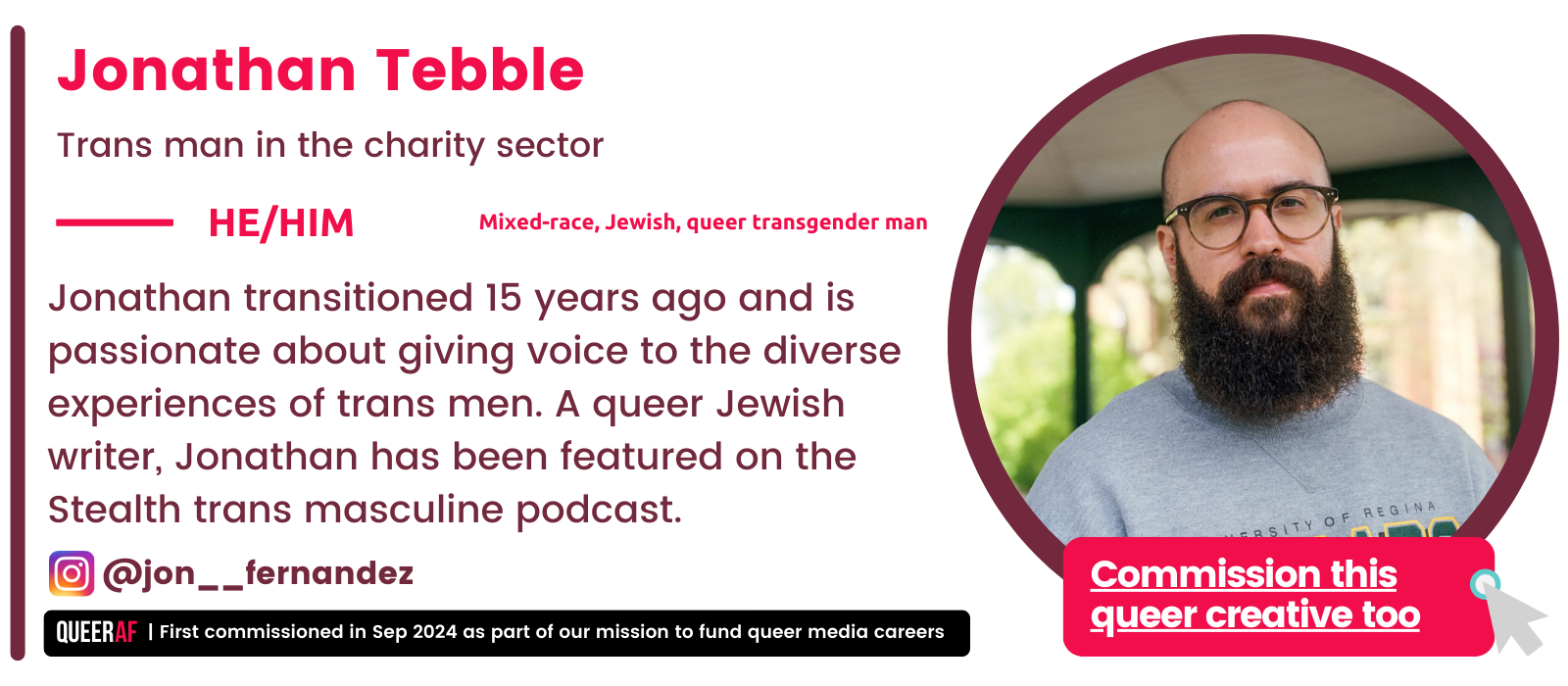
By the end of 2025, I will have been male for more than half my life. It's a milestone I never thought I'd reach when I started hormones at the age of sixteen.
Since then, I've watched the landscape of trans rights evolve, from trans kids being more or less politically and socially ‘under the radar’, to having their lives catapulted onto the front pages of tabloids.
Living as a trans adult today shows what reality looks like for trans kids who were supported by their families and allowed access to medical care when they were young. It is a reality that is threatened.
I began my transition in 2009 when social media was in its infancy and connections were in-person. I remember going to a massive park meet-up of queer youth and seeing trans people face-to-face for the first time, authentically and without the barrier of a screen.
The memories of my early transition are still clear: camping with 10 young trans people; Mermaids' barbeques in the hot summer where groups of us trans kids would sit around in our PJs chatting into the evening; attending Brighton Pride in the rain when anyone could jump in and march.
It felt like a time where people were more open to learning rather than defending an entrenched opinion; a time where I had the freedom to be a teenager without judgement.
One way I did document my early steps into manhood was by being filmed for the pioneering Channel 4 documentary The Boy Who Was Born a Girl, which followed me going back to 6th Form in male uniform and also my first few months on testosterone.
While the title of the documentary is dated, its slot on primetime TV meant lots of my classmates watched it, and it helped me to dispel some assumptions they had been holding onto when I first came to school as a boy.
I was only able to access this medical transition with the support of my mum, who advocated tirelessly for me by battling through waiting lists and doctors’ ignorance.
This was at a time where the waiting list was significantly shorter: now, young people have to wait for up to 7 years at a time to even get a first appointment.
Being able to transition at an early age meant that, by the time I was working, I was already settled into my body. I didn’t have to navigate the stress of early transition when I was socialising as an adult or try to figure out a career with that hanging over my head.
With the Labour government’s regressive attitude to trans youth already clear, families are faced with heartbreaking choices.
How to explain to their trans children that they can’t access the right treatment to make them feel safe in their own bodies and how they need to go through years of irreversible puberty only to try and undo the changes at a later time. Some have left the country entirely, reliant on other nations with more progressive policies.
As an ‘older’ trans man who was able to quickly access the support I needed, ageing in the right body has been a privilege. I moved from a gangly, fresh-faced teenager with a ponytail to a man with a shaved head, long beard and wrinkles.
My transition is a vision of possibility: it is what trans kids achieve when their medical needs are taken seriously.
What is the future for trans kids now under a Labour government whose misguided and biased ban on puberty blockers now extends several years, and whose advice is taken from the flawed Cass report?
A way forward that protects young people prioritises the health and wellbeing of trans kids and includes them in conversations about their care. One that learns from trans experts and people who have walked this path before and acknowledges that – at the end of the day – there is absolutely nothing wrong, and everything right, with growing up trans.

A different kind of queer media
As a community interest company, we reinvest our funds into supporting queer creatives and creating LGBTQIA+ content that counts.
We're ad-free, investor-free, and totally independent - so members are critical to our sustainability.
So our ask to you is simple, if you find the newsletter valuable - pay for it. We know not everyone is in a position to pay for journalism, which is why we don't have a paywall.
But if you are, consider joining hundreds of QueerAF readers who keep this newsletter free for everyone, and get bonus perks back.










